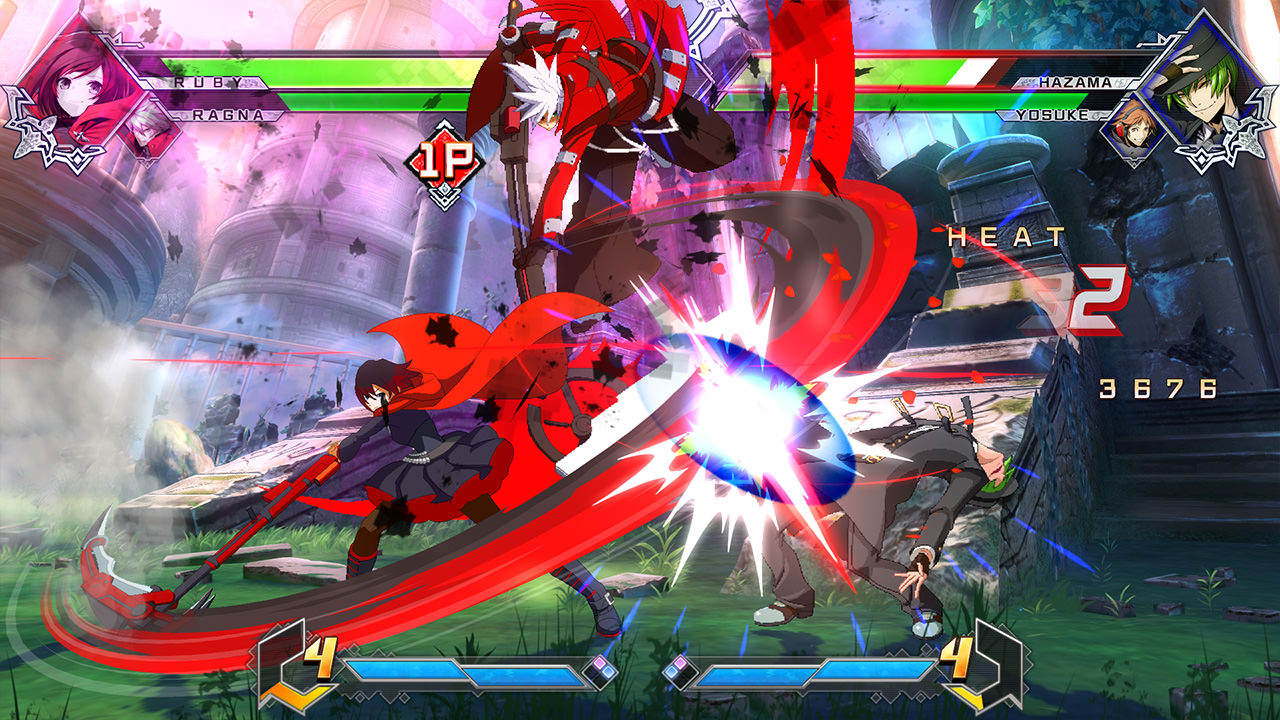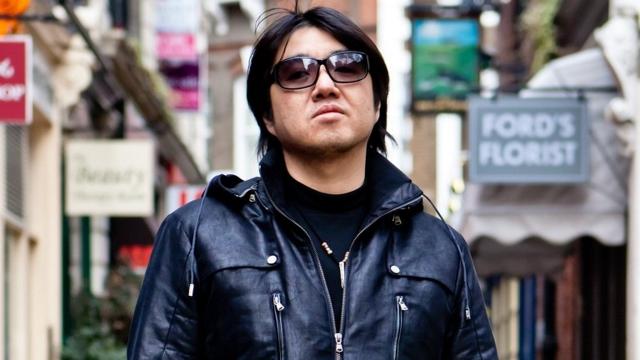During a recent press event, Arc System Works chief development officer Toshimichi Mori sat down to discuss his team’s next fighting game, BlazBlue Cross Tag Battle. The upcoming release’s simple controls, he said, are a way to make the game more accessible to newcomers as well as Western competitors who can’t keep up with their Japanese counterparts.
BlazBlue: Cross Tag Battle is a crossover endeavour featuring characters from a variety of video game franchises as well as the popular animated series RWBY. Among other things, it will feature a simplified control scheme that allows players to pull off moves with a low execution ceiling.
“For new players, it’s probably easier and more fun to jam the square and triangle [buttons], but when you get used to the game and you’re trying to extend combos or deal more damage, there’s a lot more depth to the game,” Mori told VentureBeat. “This is a new game, and I want new players to come and have fun with a BlazBlue title.”
While these platitudes are often trotted out by developers as a way to make a difficult genre seem more approachable, Mori has another reason for simplifying BlazBlue: Cross Tag Battle‘s controls: Players of their games outside of Japan are having trouble keeping up in competitive settings such as the Evolution Championship Series.
“You may have seen, at Evo last year, that in the finals, all the finalists were Japanese,” he continued. “We don’t want that. We want a global audience to have fun. We want to see more foreign players in competition. With that in mind, we kind of reset everything and re-created the controls so everyone can have fun.”
Mori is right, for the most part. Although recent years have seen Americans make it into the Evo finals of Arc System Works games here and there, you would have to go all the way back to Persona 4 Arena at Evo 2013 to find more than one Western competitor in a quarterfinal. There are exceptions such as Jachin “SKD” Harte, Steve “LordKnight” Barthelemy and Kyohei “Marlinpie” Lehr, but generally, Americans have a tough go against Japanese players, and they rarely make it past the first round of competition in overseas fighting game tournaments.
Where Mori gets things wrong, however, is the cause of this disparity. Simple controls do a lot to expand reach, sure. But Arc System Works games often launch in Japan much earlier than their Western counterparts, mostly thanks to a strong arcade culture that isn’t present elsewhere any more. The gap between releases has improved somewhat over the past few years, but it’s hard to ignore the difference even a few months can make. Street Fighter 5, for example, saw a worldwide launch back in 2016, an aspect that likely contributed to America’s increased presence in the upper echelons of competition.

c/o Arc System Works
Another point of contention in the Arc System Works community revolves around netcode, or the technical aspects of online play. Where the company’s in-house tools work fine in a small country with a robust broadband network like Japan, those tools don’t transition as well to the United States, which covers a much larger area and is relatively underdeveloped in terms of internet service. It’s often difficult for players on separate coasts to form a strong enough connection for a legitimate match, and forget about playing someone in an entirely different country. This problem has been a continued thorn in the side of the Arc System Works-developed Dragon Ball FighterZ.
One solution to this problem is a middleware known as GGPO. Developed by Evo founders (and my former employers at Shoryuken) Tom and Tony Cannon, the program utilises what is known as “rollback netcode” to provide a better online experience for fighting game players. Talking to Game Developer magazine back in 2012, Tony Cannon dove into the technical aspects of their programming, describing GGPO as “speculative execution” that “eliminates the perceived input delay for each local player”. By guessing what each player will do based on previous inputs, GGPO makes for a smoother experience.
“GGPO receives the remote inputs from the network and compares the predicted inputs to the actual ones,” he said. “If it finds a discrepancy, it rewinds the simulation back to the first incorrect frame, repredicts the inputs for each player based on the updated input stream, and advances the simulation to the current frame using the new prediction.”
(A more detailed explanation and history of GGPO can be found here.)
While it can be a simple annoyance in other genres, lag absolutely kills online play for fighting games, which require tight execution to perform the most important techniques. Skullgirls, Killer Instinct, Injustice 2 and the Cannons’ own Rising Thunder are just a few of the releases that have utilised GGPO or similar rollback netcodes, and they benefit greatly from this relationship.
The team at Arc System Works, however, is still hesitant. Chief creative office and Guilty Gear producer Daisuke Ishiwatari went as far as to say they’re “tired of hearing about GGPO” from the community, and Mori explained that BlazBlue: Cross Tag Battle will continue to use Arc System Works’ own proprietary software.
“We do have the American and European audiences in mind,” Mori added. “Latency is a problem we’re working hard to solve. We’re using our in-house technology, but we’d like to take some of the good stuff from GGPO and create a combination out of that.” It’s much more likely that Japanese players are dominating his game because of technical issues and more exposure to the game than some magical property that makes them more skilled with the controls. But it’s much easier for developers to change one than the other.

Comments
2 responses to “BlazBlue Producer Is Wrong About Why Japanese Players Dominate His Games”
The guy’s insulting his potential future western audience because his game isn’t popular in the west, I play the series, Not many ppl do, I may stop playing the series if it continues to head into obscurity.
He is right though. Simpler controls will make getting combos off easier, and therefore, even on a shit net code, you still have a chance.
He looks like Prime from the Countdown episode of The IT Crowd